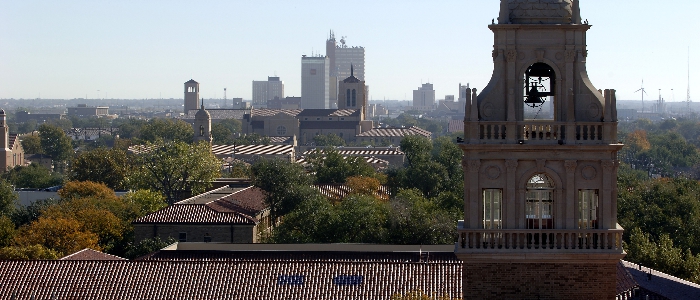About Lubbock

Lubbock is a safe, diverse city with a population of about 320,000. Lubbock's population is projected to grow seven percent through 2022. New students at Texas Tech are told “if you can't find something to do, something that interests you, then you're just not looking.” The same is true of Lubbock.
Lubbock is home to a vibrant arts and music scene. The employment and business climate is strong. The cost of living is low. Housing is affordable and a number of public school districts and private schools in Lubbock County offer excellent education opportunities.
The cost of living in Lubbock is attractive. According to the Lubbock Economic Development Alliance, is well below the national average ranking 41st out of 308 urban areas int he nation and 11th out of 34 urban areas in Texas. There is no state income tax in Texas.
Lubbock is a growing, dynamic city that easily mixes its western heritage and agricultural roots with high-tech education and health care. Cotton may still be king, the region around Lubbock produces 64% of the state's cotton crop, but it is the city's arts district that shines the first Friday of every month.
Named for Thomas S. Lubbock, a former Texas Ranger, Lubbock was established in 1890. It is known as the Hub City for its central location, at the intersection of Interstate 27 and four major U.S. highways, making it a retail, business and medical hub for the region.
Lubbock sits at 3,200 feet above sea level in the heart of the Llano Estacado on the South Plains of Texas. The city has a mild climate with predominately warm days and cool nights throughout the year. Summers are hot, but the humidity is relatively low. Winters are sunny and mostly mild, but there are periods of cold and snow.
While Lubbock has only been a town since 1890, the area has been the site of continuous population for more than 12,000 years. The Lubbock Lake Landmark, a part of the Museum of Texas Tech University, is a world-renowned archeological site that provides the documented proof of constant habitation from about 4,000 B.C.
More about Lubbock
- Lubbock Chamber of Commerce
- Lubbock Economic Development Alliance
- Lubbock Arts Alliance
- First Friday Art Trail
- City of Lubbock
- Lubbock County
- History of Lubbock
- Lubbock at a glance
Office of the Provost
-
Address
104 Administration Building, Box 42019, Lubbock, Texas 79409-2019 -
Phone
806.742.2184 -
Email
provost.communications@ttu.edu
